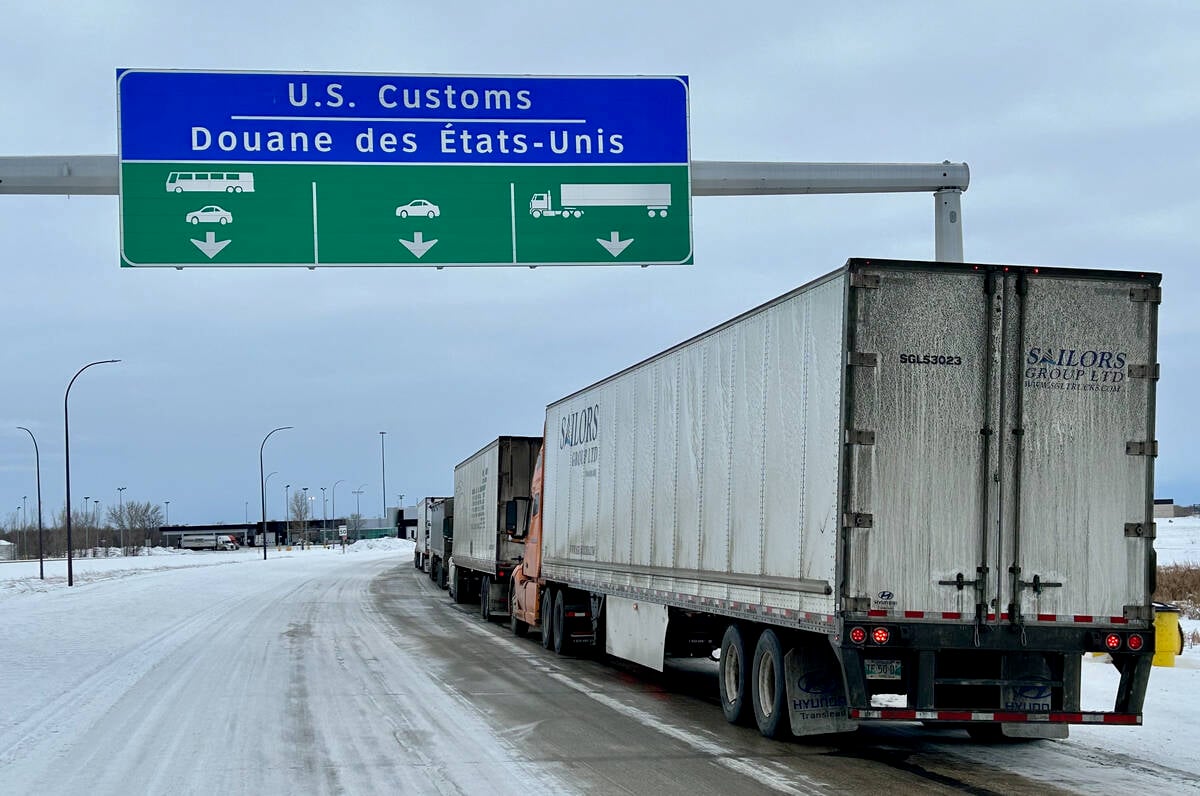Carl Brockman had a nightmare about fire the night before he spoke to the Alberta Common Ground Alliance meeting March 5.
He has many nightmares about fire.
The district foreman for Atco Gas nearly died in a 2001 accident in Olds, Alta., when he was repairing a gas leak.
He was surrounded by fire when a pipe split as he was welding it, and he was trapped in a five-foot-deep hole with a broken fire extinguisher as flames licked around him.
He suffered first-degree burns to his face and ears, second degree burns to his arms and third degree burns to his legs.
Read Also

U.S. bill could keep out Canadian truckers
The Protecting America’s Roads Act, which was tabled in the U.S. House of Representatives at the beginning of October, would “rid the country of illegal immigrant commercial truck drivers and ineligible foreign nationals.”
Investigation later revealed the pipe he was repairing had been hit and damaged years before but no one had reported it.
His story shows the importance of calling before digging and of reporting accidental damage to underground utilities.
“This is a thing that I don’t want anybody to go through,” he told 270 people at the Lethbridge meeting.
“Find a way to do it safe. Don’t take any chances.”
Many gas lines, pipelines and power lines criss-cross rural Alberta, and farmers have a fairly good record of calling before they dig so that they know the exact location of underground lines, said Alberta One-Call Corp. president Mike Sullivan.
“We do track our locate requests and the rural numbers are very high, so that is a good indication that the agricultural community is contacting us for locate requests,” he said in an interview after a speech.
Farmers don’t necessarily have a legal obligation to call before they dig. It depends on who has regulatory authority on the line.
People are required to identify the exact location of a pipeline under National Energy Board governance if it’s 30 metres from where they intend to dig, said Sullivan.
That’s also the case for lines under Energy Resources Conservation Board authority.
There’s no legal obligation for farmers to call when digging near fibre optic or telephone lines, although the wisdom of doing so is obvious.
“The jurisdictional mix says they have to identify what’s there. Do they have to call before they dig? Is that language there specifically? Not necessarily. Only with the ERCB. But Alberta One Call … why wouldn’t they? We just make it that much simpler.”
Alberta One Call, established almost 30 years ago, provides the location of underground lines to farmers, contractors, excavators, homeowners and virtually anyone else who plans to dig a hole.
It has publicized its “call before you dig” motto, and Sullivan said it will soon implement a “click before you dig” campaign when it launches its full online service later this month.
Working with Alberta One Call, the Alberta Common Ground Alliance also plans to launch an anonymous reporting process for anyone who damages a pipeline, gas line or utility line.
Anonymous reporting will prevent repercussions for the perpetrator, but it will allow the alliance to address damage and collect data on how and where damage occurs, said Sullivan.
That way the alliance can identify trends and develop training materials to prevent incidents where lines are damaged.
Such a service could have saved Brockman months of physical pain and a lifetime of anguish.
“It’s the mental scars that hurt me most,” he told the crowd. “I think about how bad it could have been.”

















